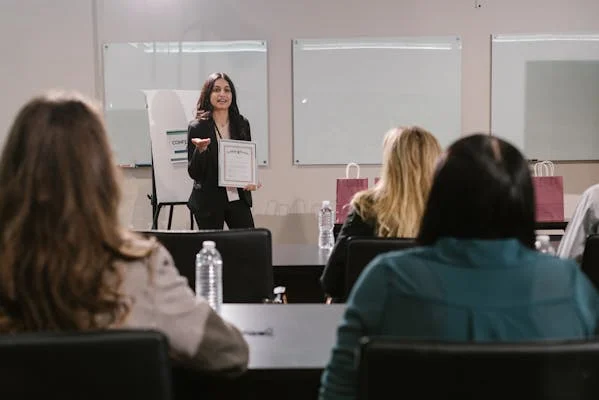Formal education has long been heralded as the foundation for personal and professional growth. Schools, colleges, and universities have played a significant role in shaping the individuals who fuel economies and build societies. Yet, in recent years, an increasing number of voices have begun questioning the effectiveness of our education systems. Are these institutions truly preparing students for real-world success, or are they faltering under their own outdated structures?
This blog explores the key issues plaguing formal education today. We’ll uncover why these problems persist and discuss actionable alternatives for a system better suited to the challenges of the 21st century.
The Key Issues With Formal Education
1. Overemphasis on Standardized Testing
One glaring problem with formal education is its heavy reliance on standardized testing. Exams such as SATs, GREs, and other assessments have become the benchmarks for student success. But are these tests truly indicative of a student’s abilities?
- Lack of Practical Skills
Standardized tests often assess rote memorization and analytical thinking but fail to measure creativity, problem-solving, and collaboration the very skills employers are looking for. For instance, data from the World Economic Forum highlights critical thinking as one of the most in-demand job skills, yet formal education systems lag in fostering it.
- Pressure and Anxiety
Studies show that the pressure to perform well in standardized tests elevates stress and anxiety among students. A 2020 report by the American Psychological Association revealed that nearly 61% of students felt overwhelmed by exam-related stress, undermining their overall mental health.
2. Lack of Personalization
Every student learns differently. Yet, formal education systems often rely on a one-size-fits-all approach, leaving little room for individual growth.
- Rigid Curricula
Many institutions follow fixed curricula, limiting the freedom to explore topics or teaching methods that resonate with individual learners. This rigidity stifles creativity and intrinsic motivation. For example, a student with a passion for design may find little encouragement in a traditional classroom focused primarily on core subjects like science and math.
- Ignored Learning Styles
Different students excel in different ways—some are visual learners, others prefer hands-on activities. However, traditional education often caters exclusively to linguistic and logical thinkers, leaving others underrepresented and unsupported.
3. Outdated Curricula
Another significant issue is the outdated content taught in formal education systems.
- A Disconnect from Modern Realities
Many curricula fail to align with today’s job market. Subjects like coding, digital marketing, or entrepreneurship, which are crucial in the current economy, are often secondary to conventional subjects like algebra or history. A report by the EdTech Review revealed that only 13% of students feel ready for the workforce upon graduating.
- Lagging Behind Future Trends
Emerging fields such as artificial intelligence, blockchain, and cyber-security remain underrepresented in education. Without exposure to these fields, students enter the workforce unprepared for evolving industry demands.
4. Limited Focus on Critical Life Skills
While traditional schooling focuses heavily on academic achievement, vital life skills often fall by the wayside.
- Financial Literacy
Many students graduate without understanding how to manage their personal finances, file taxes, or save for retirement. According to a FINRA study, 66% of millennials demonstrate low levels of financial literacy.
- Mental and Emotional Well-being
Emotional intelligence (EQ) and resilience are crucial for personal and professional success, yet they’re rarely covered in formal curricula. Programs to teach empathy, conflict resolution, and stress management are sorely missing from most schools.
5. Inequality and Accessibility
Access to quality education remains a fundamental issue. Geographical, economic, and systemic inequalities have left millions of children without access to adequate schooling.
- Digital Divide
Amid the increasing digitization of classrooms, students in low-income households often lack access to the necessary technology. The United Nations reported that one-third of the world’s students couldn’t access remote learning during the COVID-19 pandemic.
- Economic Barriers
High tuition fees for colleges and universities make advanced education unattainable for many families, risking generational cycles of poverty.
6. Overlooked Soft Skills
While technical and academic skills dominate formal education, soft skills such as communication, teamwork, and adaptability often get sidelined.
- Teamwork and Collaboration
Many classrooms prioritize individual achievement over collaborative work. However, research highlights that teamwork is one of the top skills required in any profession.
- Communication Skills
Despite their importance across industries and roles, communication skills including public speaking, persuasion, and negotiation—are rarely emphasized in formal education settings. what is the problem with formal education.
Rethinking Formal Education for the Modern Era
Given these pressing issues, how do we reimagine formal education to better prepare students for the real world?
1. Focus on Skills-Based Learning
Introduce programs that emphasize practical, hands-on skills over theoretical knowledge. This could include coding boot camps, vocational training, or interactive workshops.
2. Encourage Lifelong Learning
Adopt frameworks that promote continuous education beyond formal schooling. Online platforms like Coursera and edX offer affordable, flexible learning options that cater to modern needs.
3. Foster Emotional Intelligence
Implement programs focused on mental health, emotional intelligence, and conflict resolution at the school level to foster well-rounded, empathetic individuals.
4. Update the Curriculum
Align curricula with 21st-century job market trends, integrating subjects such as AI, data analytics, and sustainability.
5. Adopt Personalized Education
Leverage technology to offer individualized learning experiences tailored to student needs and preferences.
Final Thoughts: The Need for Holistic Education Reform
Formal education has played a pivotal role in societal advancement, but its shortcomings can no longer be ignored. By addressing issues such as outdated curricula, the lack of practical skills education, and unequal access, we have an opportunity to create an education system that’s inclusive, innovative, and impactful. If you’re passionate about bringing change to the education landscape or want to explore alternative learning methods, there are myriad ways to get involved, from contributing to policy discussions to exploring emerging digital learning platforms.
what is the problem with formal education?





